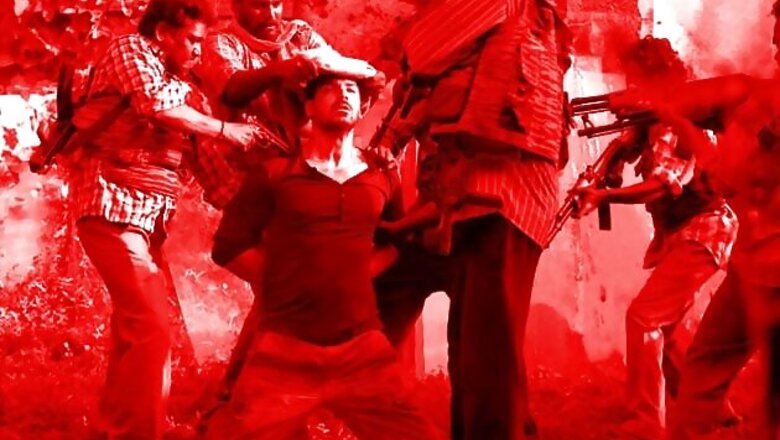
views
New Delhi: The proud proclamations of the moviemen (and women) of their upcoming film being different has become so stale a joke that the same filmwallahs, notwithstanding their undying love for the banal, have drastically reduced their usage of the word 'hatke'. Interestingly, more 'hatke' movies are being made now when (the faux) 'hatke' is no longer the industry's catchphrase.
In the recent past, no other film seems to have broken out of the Bollywood mould as much as the Shoojit Sircar directed, John Abraham starring Madras Cafe. Sircar's much applauded 2012 film Vicky Donor even while being different moved about within the peripheries drawn by thousands of films produced in the City of Dreams (the film though had Delhi as the backdrop) before his.
(The sentences below are filled with spoiler mines. Tread at your own risk)
In spite of its shortcomings, Madras Cafe is a nonconformist in the Bollywood scheme of things and here are a few reasons why (if you have a reason to add or subtract, agree or disagree, do them in the comments):
Failure as an ending: This isn't the usual all-that-ends-well and also not the relatively fewer all-that-doesn't-end-well-but-celebrates-death kind of film. There is no celebration of death, there is a failure. And not many films have told stories of failures, at least not here.
Parallel between the reel and the real: Hindi cinema has traditionally shied away from contemporary history, especially that of the political kind. Politics here is usually handled in the wishy-washy Prakash Jha way. Similarities are mere semblances. It is not as easy in India to put real names on film as it is there in the US but in Madras Cafe we clearly know who's who.
Familiar yet unfamiliar territory: Whenever Bollywood had an overseas tale to tell, it either took a flight to Europe or America and once in a while walked over from the border at Wagah. This crossing of the Palk Strait is therefore momentous. It is about neighbour we know well about but didn't seem to care much. Hope this is only the beginning of a lot of seas to cross. Fiji can make for a nice film.
Attempt at neutrality: In stories of crises there are always more sides than many and none are right. Neutrality is only an apparition. Yet, Madras Cafe tries to subtly balance the three important sides in the story. India, Sri Lanka and the LTF (the name by which the LTTE is referred to in the movie). It being a story told in flashback from the point of view of an ex-RAW officer, the Aviators do appear to have a tint of the Tricolour, but then a totally neutral story (if there is any) is a relatively boring tale to tell.
No heroine: There are two women linked to the leading man, but none of them is a heroine in the Bollywood sense of the term. Nargis Fakhri appears as a contrast to the devastation around, but she is more of a character actor and so is Rashi Khanna, who plays John Abraham's wife.
Less song and no dance: While one kind of lip-synching is getting out of fashion, another kind is gaining more and more currency (if only our currency could gain some). Madras Cafe doesn't have characters synching their lips to the voices of a playback singer but are more comfortable doing that each other's lips in one abrupt and possibly unnecessary scene. No songs is not a novelty, BR Chopra did that with Kanoon back in 1960. Madras Cafe does have songs listed on its soundtrack but not presented on the screen in the way we are used to. If there is any dance in the film, it is only the dance of death.
No romance: Vikram Singh (played by John Abraham) loves his wife (he is also shown making love to her) and is devastated by her death. This romance, is so not over the top and therefore is equivalent to no romance as defined by 99 per cent of Bollywood films (the figure might appear to be an exaggeration, but chances are if you sat down with the DVDs of all the films and a calculator, it would come to approximately about this figure). We have been so trained watching this romance thing, that we expect the chemistry to get out of hand (and go between the sheets) between the hunk of a Major and a stunner of a war correspondent. But, that, doesn't happen. Even our most unromantic of films have had more romance than this. A blow to Bollywood romance, I say.




















Comments
0 comment